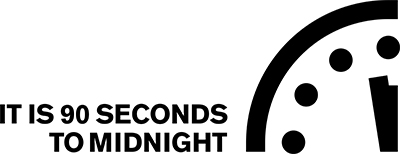
Bulletin of the Atomic Scientists, November 25, 2024
Posted: 25th November 2024

Thawing permafrost on Herschel Island, off the coast of Yukon, Canada. (Photograph: Boris Radosavljevicig)
VALERIE BROWN
A rising danger in the Arctic
As climate change melts permafrost, microbes will emerge. The world isn’t paying enough attention to the potential threat they pose. Read more.
ARJUN MAKHIJANI
The entanglement of fusion energy research and bombs
Not many people are aware of the connection between fusion research and nuclear weapons. But the two have a long history. Part of our November magazine on fusion, this article is available to all for a limited time. Read more.
SARA GOUDARZI
Why a newly passed House “terrorism financing” bill could threaten nonprofits and free speech
An interview with Kia Hamadanchy, senior federal policy counsel at ACLU, about the origins, implications, and future of H.R. 9495. Read more.
JUSTIN KEY CANFIL
Can they control the weather? How the secretive history of weather weapons fuels conspiracy theories
Although it may sound like science fiction, the US government once researched hostile environmental modification technologies. The US halted its pursuit of weather weapons—not because it was impossible, but because of the possibility that such technology might fall into the wrong hands. Read more.

”Weather Made To Order?” Illustration by Frederick Siebel for Collier’s magazine cover story in May 1954.
QUOTE OF THE DAY
“AI companies that are involved in this space are investing a lot in renewable energy and hopefully that will spur a faster transition away from fossil fuels. But is that enough? It actually has to lead to transformative change.”
— Asmeret Asefaw Berhe, former director of the US Department of Energy’s Office of Science, ”’An AI Fukushima is inevitable’: scientists discuss technology’s immense potential and dangers,” The Guardian
Your gift fuels our mission to educate and empower. Together we will work to ensure science serves humanity.


